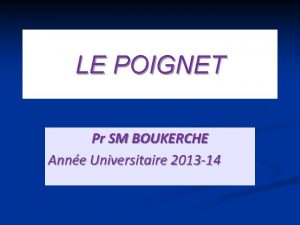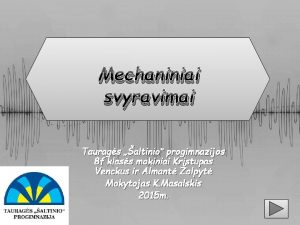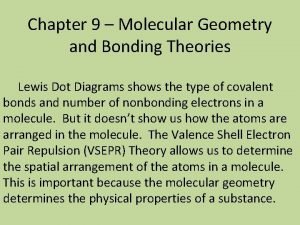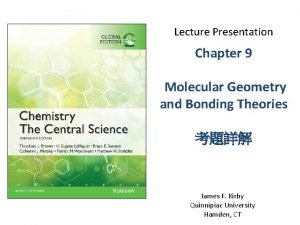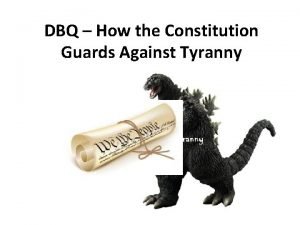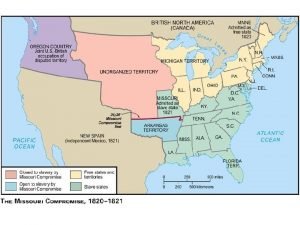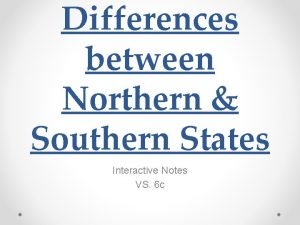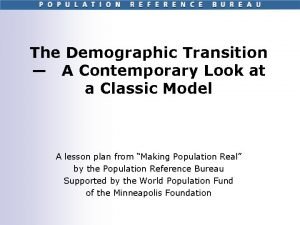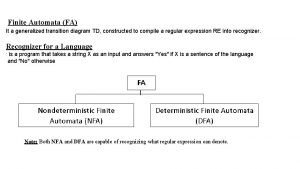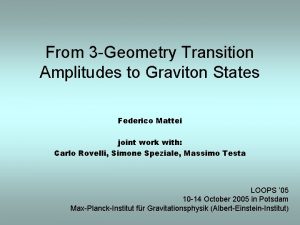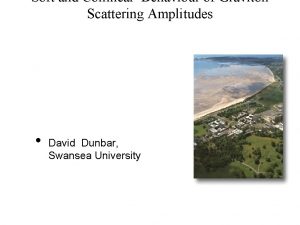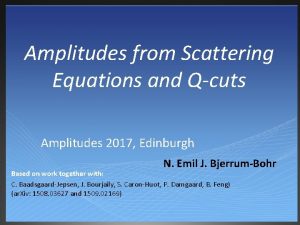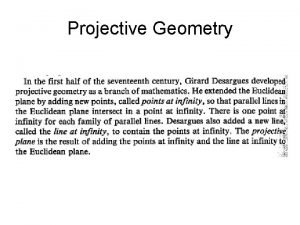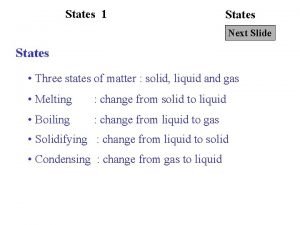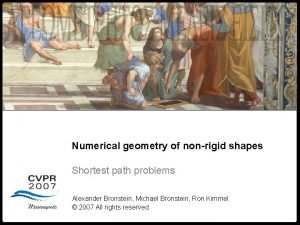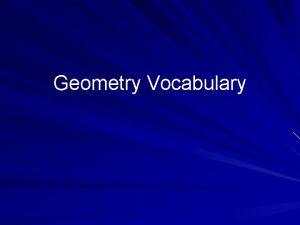From 3 Geometry Transition Amplitudes to Graviton States









- Slides: 9

From 3 -Geometry Transition Amplitudes to Graviton States Federico Mattei joint work with: Carlo Rovelli, Simone Speziale, Massimo Testa LOOPS ’ 05 10 -14 October 2005 in Potsdam Max-Planck-Institut für Gravitationsphysik (Albert-Einstein-Institut)

The functional integral approach in Yang-Mills theory have several interesting properties in the temporal gauge*, A 0=0: • It is naturally closer to the Hamiltonian formalism. • The kernel is interpreted as the transition amplitude between the boundary states. • The kernel can be expanded to obtain the physical states (n-particle states satisfying the constraints). * G. C. Rossi, M. Testa, Nuclear Physics B 163 (1980)

The functional integral of the gravitational field is There are three sources of infinity: • The ultraviolet divergences, we disregard them here; non-perturbative definitions of the integral would take care of them. • The invariance under diffeomorphisms of General Relativity. • A sufficient number of boundary conditions. Only one classical solution have to be selected by them by minimizing the action.

General Relativity is invariant under diffeomorphisms. They can be considered the gauge transformations of theory. The General Relativity analogue of the temporal gauge is the proper-time gauge We gauge-fix the path integral using the Faddeev. Popov identity, integrated over the 4 d diffeomorphisms. The exact expression for the propagation kernel of General Relativity is

We focus on two boundary cases: • The compact case: initial and final 3 -metrics may determine a unique classical solution. The thin sandwich conjecture states that there is only one spacetime metric between two spacelike metrics. We restrict to the cases where the conjecture holds. The kernel is independent from T, because of the integration over temporal diffeomorphisms. • The asymptotically flat case: the thin sandwich conjecture fails in the linearized case*, so to define the kernel we need one more condition. We demand g to converge asymptotically to . The parameter T in the kernel remains and represents the proper time between the boundaries at the spatial infinity. * A. Peres, N. Rosen, Il Nuovo Cimento 13 (1959)

We focus on the asymptotically flat case: • h is a perturbation around Minkowski metric • diffeomorphisms are infinitesimal The propagation kernel of linearized gravity is* Temporal diffeomorphisms integration ! linearized Wheeler de. Witt constraint Spatial diffeomorphisms integration ! exponential term in the transverse-traceless components It can be expanded in e-ip. T to obtain the vacuum state and the n-graviton states. * F. Mattei, C. Rovelli, S. Speziale, M. Testa, gr-qc/0508007

Results • Expansion in physical states • Vacuum state* • 1 -graviton state * J. B. Hartle, Phys. Rev. D 29 (1984); K. Kuchař, J. Math. Phys. 11 (1970)

Yang-Mills theory: by inserting an external source, in the low energy limit we obtain the Coulomb potential. To reconstruct the Newton potential we have to consider also a low gravity limit. Inserting an external dust distribution in the linearized approximation of the gravitational functional integral, we obtain The phase factor is the Newtonian self-energy of the external dust distribution

Conclusions We have studied the propagation kernel of General Relativity in the temporal gauge: • It can be interpreted as a 3 -geometry to 3 -geometry transition amplitude or as a projector on the solution on the quantum constraints. • In the case of compact boundaries it is independent from T. • We considered the linearized case. Using a systematic procedure we obtain the vacuum state and the n-graviton states, which fulfill the constraints of theory. • By coupling a static source to the field, we extract the Newtonian self-energy from the linearized expression of the kernel.
